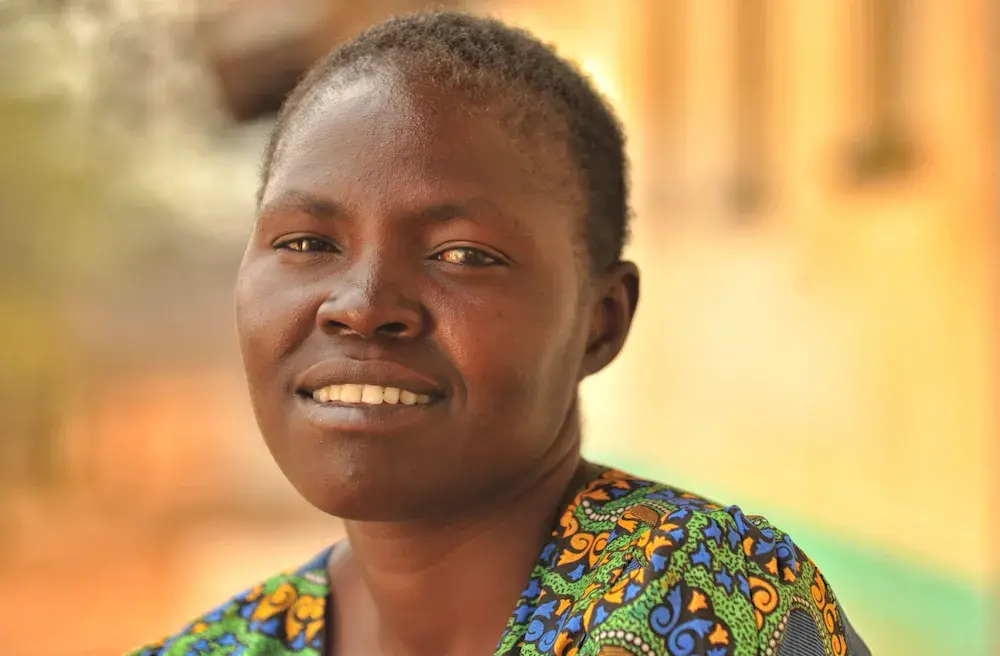Ambassadors to Botswana were briefed by the United Nations (UN) on the ICPD Beyond 2014 Agenda.
The briefing was a call to action for Ambassadors to reach out to their Governments and constituencies to renew political support for actions required for the achievement of the ICPD goals, as the world prepares to discuss the Report of the Secretary General for the framework of the follow up action at the United Nations General Assembly Special Session in September. This briefing was organized as part of UN Botswana’s advocacy plan towards bringing the post-2015 development agenda along with social, economic and environmental aspects of sustainable development to the centre of development practitioners' daily conversations.
Despite the progress made in the implementation of the Programme of Action (POA) a number of the goals have not have not been achieved and these include universal access to sexual and reproductive health, comprehensive sexuality education, and gender equality. At the same time, more recent dynamics such as population ageing, the slowing of population growth, increasingly complex migration flows, basic human rights and the emergence of more diverse forms of families need to be addressed.
The UN Resident Coordinator in Botswana, Anders Pedersen emphasized that challenges still remain to improve the quality of life of all people, ensure equality and equity and protect the environment for generations to come. “The focus on increasing wealth and income inequalities; unfulfilled gender equality and empowerment of women; the need for lifelong learning and building human capabilities especially for young people; addressing the equalities in access to sexual and reproductive health services, including through strengthening health systems both in rural and urban areas, have significant implications for development policy,” Pedersen said.
When giving her presentation UNFPA Botswana Representative, Aisha Camara-Drammeh emphasized that the rights and opportunities of individuals, in particular women and youth, must be at the centre of population and the post 2015 development agenda. “The main message coming out of the briefing is that the ICPD has unfinished agenda e.g. social inequalities, deprivation of basic needs, limited employment opportunities especially among women and young people, limited access to social protection, inadequate participation of young people in decision-making that affects them. These are challenges that still remain so the principles developed in Cairo two decades ago remain highly relevant today.”
The post 2015 development agenda is based on three principles:
-
• Right to development: the right to develop in all spheres of life, including human rights and human development, and in peace and security;
-
• Empowering and Increasing the capacity of people to play a more strategic role in development; and
-
• Justice, equality and human dignity and rights for achieving inclusive and sustainable development.
In this regard it is imperative that the international community and each country reaffirm its support for the support of the ICPD Programme of Action as well as the vision presented in the Post 2015 Development Agenda.
For his part, Rev. Rupert Hambira, who is the Chairperson of the National Council on Population and Development in Botswana reiterated that at about 60% of the population, the youth can no longer be ignored and need to be included in the development agenda. He also highlighted the need to include minority groups in the development agenda, address contentious issues such as same sex relationships, make migration work for development and ensure rights and security for migrants.
In closing, World Health Organisation Representative Dr Felicitas Zawaira called on the Ambassadors to encourage their Governments to join the rest of the world to set out bold policy actions that reinforce this vision as demonstrated in the results of the review of the implementation of the POA at national, regional and global level. “The future that young people face is different from what our generation went through. For example; they experience stigma and discrimination, laws that discriminate and limit their ability to exercise their rights to the fullest extent. We therefore need to make bold decisions to help women and young people in particular overcome those challenges. This will contribute to the growing momentum in the process towards developing a Post 2015 development agenda.”
There are 17 proposed goals and 169 targets in the sustainable development goals with an overarching goal of poverty eradication. These goals constitute an integrated, indivisible set of global priorities for sustainable development. Targets are defined as aspirational global targets, with each government setting its own national targets guided by the global level of ambition but taking into account national circumstances. The goals and targets integrate economic, social and environmental aspects and recognize their inter-linkages in achieving sustainable development in all its dimensions.
The Ambassadors expressed appreciation to the UN Botswana for the briefing on ICPD and showed commitment to share with their constituencies.



